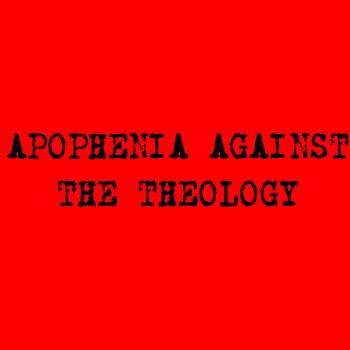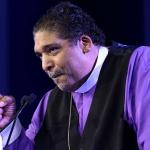
Welcome to the world where divine decrees are as common as dollar-store theology, and today’s special on the menu is the ever-popular quip of one’s God-given right to self-defense. You’ve heard it in political rallies and during Sunday sermons. But let’s be real – is this phrase a ticket to divine-endorsed murder, or just another chapter in the grand American tradition of baptizing our biases?
In a country where the Bible doubles as a political manifesto, this phrase has become a mantra that’s used way too often. Spoiler alert: it’s not theological or part of historical Christianity. Buckle up, it’s time to expose the sordid FWB relationship between religious rhetoric and political posturing.
Historical Context: The Making of a Sacred Soundbite
History is pivotal for context. Let’s explore the origins of the God-given right to self-defense. This phrase isn’t a divine revelation; it’s a distinctly American invention, stemming from the nation’s intertwined love affair with firearms and faith.
Trace back to the era of muskets and powdered wigs: the Second Amendment emerged, gaining unwavering support. Over time, this constitutional right morphed into a supposed divine decree.
The twist? There’s no solid scriptural backing. It’s a theological concoction: take Old Testament self-defense principles, omit Jesus’ teachings, and mix in Enlightenment-era ideals of liberty. The result? A supposed divine mandate that’s more American folklore than biblical truth.
In this evolution, we see not just a phrase but a political concept repackaged as religious dogma – a quintessentially American narrative.
Biblical Gymnastics: Twisting Scriptures
The Old Testament’s take on self-defense is layered, riddled with conditions and caveats – far from a blanket endorsement of eye for an eye violence. Context is crucial, especially in a book where punishments like stoning for Sabbath violations are prescribed.
Switching to the New Testament, we find Jesus preaching love, peace, and non-retaliation. The notion of Jesus advocating for armed self-defense is conspicuously absent. His teachings and parables lean more towards metaphorical swords and loving enemies than literal armament – hardly a narrative you’d find in a pro-gun brochure.
What does this tell us?
The Bible doesn’t serve as a clear-cut guide for self-defense. Rather, it becomes a canvas onto which personal ideologies are projected. The leap from biblical texts to a God-given right to self-defense involves a selective and creative interpretation that often puts personal beliefs before doctrinal accuracy. This isn’t genuine theological study; it’s a form of religious alchemy, turning personal views into purported divine truths.
Theological Twister: Denominational Guesswork
The stance on self-defense varies wildly across denominations, with little consistency. Some groups, citing passages like Luke 22:36, fervently support the right to bear arms, conveniently overlooking the parts where restraint is emphasized. Others, focusing on Jesus’ teachings of non-violence, champion pacifism, often finding themselves at odds in debates with gun advocates.
Caught in the middle are numerous denominations adopting a more nuanced approach, advocating for responsible gun ownership and moral defense – a diplomatic way of navigating this theological minefield without alienating congregants.
The crux of the matter is that theological views on self-defense are as diverse as the churches debating them. Each claims a unique insight into divine will, yet often, these stances reflect less of divine guidance and more of human conjecture and compromise.
Modern Misinterpretations: Politicizing the Divine
Fast forward to today, where the God-given right to self-defense has morphed into a political slogan, predominantly used by gun rights advocates. This tactic effectively sanctifies firearms, transforming them from mere weapons into symbols of divine protection. Here, theology takes a backseat to the glorification of personal liberties, packaging political stances as God-endorsed.
The audacity of this interpretation is stark. It’s akin to cherry-picking Bible verses to justify personal preferences, stretching interpretations until they bear little resemblance to their origins. The phrase becomes less about scriptural truth and more about validating cultural biases and fears under a veneer of divine approval.
Ultimately, the current usage of this phrase reveals more about societal values and anxieties than any enduring spiritual principles.
Underlying Motivations: Unmasking the Divine Guise
Let’s tackle the core question: : If this God-given right to self-defense isn’t as biblically backed as claimed, what’s really fueling this bullet-and-brimstone rhetoric?
Cultural Identity: The American Mosaic
The phrase God-given right to self-defense is deeply embedded in American cultural identity. It resonates with the ethos of rugged individualism and the Wild West, where firearms symbolize both protection and power. This narrative, featuring the solitary hero armed with a Bible and a rifle, epitomizes a uniquely American brand of defiance against perceived threats to freedom.
Politically, invoking God in the context of gun rights elevates policy debates to a higher moral plane. It’s a strategic move, transforming discussions about the Second Amendment into battles of cosmic significance. This isn’t merely about gun ownership; it’s about enshrining these rights within a divine framework, as quintessentially American as the founding documents, with an implied sanctity that’s hard to challenge.
Psychological Comfort: Divine Assurance
The appeal of the God-given right to self-defense extends into the realm of psychological comfort. In an uncertain world, the idea of God as a personal protector offers immense solace. It acts as a spiritual security blanket, providing a sense of divine sanction for personal safety. This notion of celestial guardianship is a powerful balm for the anxieties of a chaotic world.
Fear and Control: The Hidden Drivers
At its core, the God-given right to self-defense is fueled by fear and a desire for control. It’s rooted in the fear of the other, the anxiety of losing power, and the dread of not being the righteous defender. This rhetoric transcends mere home defense; it’s about safeguarding a particular way of life, a belief system where divine favor justifies and fortifies one’s rights and actions.
Ultimately, this concept is less about genuine theological principles and more about a blend of cultural identity, political manipulation, psychological reassurance, and underlying fears. It’s a narrative that deeply resonates in a society wrestling with its own myths and truths, a tale we weave to rationalize a complex and often contradictory reality.
Divine Right or Convenient Rite?
Our exploration reveals the God-given right to self-defense as less a divine mandate and more a cultural construct, a rallying cry that falters under theological examination.
It’s a cautionary tale: when religion and politics intertwine, danger often follows. Branding personal ideologies with divine approval not only distorts scripture but also warps reality, leading us into a maze of misrepresentations.
This phrase, steeped in culture, politics, and dubious theology, reflects more about societal narratives than divine truth. It mirrors our collective fears, aspirations, and the uniquely American story of individualism and perceived divine favor.
In an era where divine endorsements are tossed around like cheap slogans, critical thinking and skepticism are essential. We must look beyond surface-level theology to discern deeper truths.
Ultimately, the God-given right to self-defense is malleable, a testament to our ability to cloak desires and fears in religious rhetoric. It’s a vivid example of how we shape belief to suit our purposes.
And with that, we’ve unraveled another theological knot, challenging another sacred cow. Stay sharp in your faith, open in your thoughts, and ever-vigilant against BS beliefs.
For more Snarky Faith check out the podcast:


















